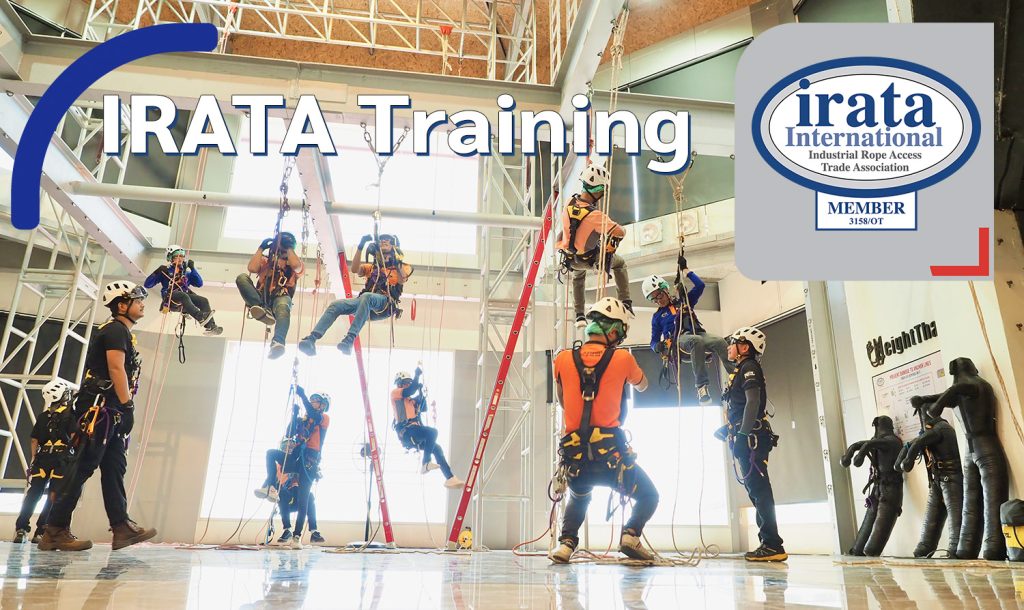
The Industrial Rope Access Trade Association (IRATA) is the world’s leading authority in industrial rope access. Founded in the late 1980s, IRATA sets the standards for rope access training and certification. IRATA training is essential for those aspiring to work as rope access technicians in various industries, including construction, offshore oil and gas, wind energy, and more. This article explores IRATA training, its levels, benefits, and career prospects for certified professionals.
### What is IRATA Training?
IRATA training focuses on the safe and efficient use of ropes and associated equipment to access difficult-to-reach places for inspection, maintenance, and repair. Unlike traditional access methods like scaffolding or cranes, rope access provides a more flexible, cost-effective, and less intrusive way of working at height or in confined spaces. The IRATA training program ensures that technicians are skilled in using ropes safely and effectively while complying with strict safety protocols.
### The IRATA Certification Levels
IRATA certification is structured into three distinct levels: Level 1 (Technician), Level 2 (Experienced Technician), and Level 3 (Supervisor). Each level represents a progression in skills, knowledge, and responsibilities.
#### IRATA Level 1: Rope Access Technician
IRATA Level 1 is the entry-level certification for aspiring rope access technicians. This training level focuses on basic rope access techniques, safety procedures, and the use of equipment. The course typically lasts for five days, including both theoretical and practical sessions.
Key components of Level 1 training include:
– **Basic Rope Access Techniques**: Learning how to ascend, descend, and move horizontally on ropes.
– **Equipment Knowledge**: Understanding different types of ropes, harnesses, carabiners, and other safety equipment.
– **Safety Protocols**: Emphasis on risk assessment, emergency procedures, and rescue techniques.
– **Hands-On Practice**: Candidates practice rope access maneuvers in controlled environments.
To pass the Level 1 certification, candidates must successfully complete a practical examination and a written test conducted by an independent IRATA assessor. A Level 1 technician works under the supervision of a Level 3 supervisor.
#### IRATA Level 2: Experienced Rope Access Technician
IRATA Level 2 training is designed for technicians who have accumulated sufficient experience and wish to advance their skills. To qualify for Level 2 training, candidates must have logged at least 1,000 hours of rope access work and have a minimum of 12 months of experience as a Level 1 technician.
The Level 2 course includes:
– **Advanced Rope Access Techniques**: Training in more complex maneuvers, such as rope-to-rope transfers, rescue techniques, and rigging.
– **Inspection and Maintenance Skills**: Knowledge of equipment inspection, maintenance, and minor repairs.
– **Rescue Procedures**: Focus on advanced rescue techniques and scenarios, including rescuing fellow technicians.
– **Teamwork and Communication**: Emphasis on effective communication and teamwork in high-risk environments.
After completing the course, candidates undergo a rigorous assessment conducted by an independent IRATA examiner. A Level 2 technician can perform a broader range of rope access tasks and assist in rescue operations, but they still work under the guidance of a Level 3 supervisor.
#### IRATA Level 3: Rope Access Supervisor
IRATA Level 3 is the highest level of certification and is aimed at experienced technicians who wish to become supervisors. Candidates must have at least 1,000 hours of work experience at Level 2 and a minimum of 12 months since achieving Level 2 certification.
Key areas of focus for Level 3 training include:
– **Supervisory Skills**: Training on managing rope access teams, conducting safety briefings, and overseeing operations.
– **Advanced Rescue Techniques**: Expertise in planning and executing complex rescue scenarios.
– **Risk Management**: Understanding risk assessment, method statements, and emergency procedures.
– **Regulatory Knowledge**: Awareness of industry regulations, standards, and best practices.
Level 3 technicians are responsible for supervising rope access operations, ensuring safety compliance, and conducting risk assessments. They can also train and mentor Level 1 and Level 2 technicians.
### The Benefits of IRATA Training
IRATA training offers several benefits to both individuals and employers. For technicians, IRATA certification is recognized globally and opens up job opportunities in various industries. The training equips technicians with skills in high demand for construction, maintenance, inspection, and repair services. IRATA-certified technicians are highly regarded for their professionalism, safety, and reliability.
Employers benefit from hiring IRATA-certified technicians by reducing the risk of accidents and injuries, ensuring compliance with industry standards, and improving overall productivity. IRATA’s rigorous training standards and certification processes ensure that technicians are well-prepared to handle challenging environments safely and effectively.
### Career Prospects for IRATA-Certified Technicians
IRATA certification can lead to a rewarding career in several sectors. Here are some industries where IRATA-certified technicians are in high demand:
– **Offshore Oil and Gas**: Technicians perform inspection, maintenance, and repair tasks on offshore platforms and rigs.
– **Wind Energy**: Rope access is used to inspect and maintain wind turbines, especially in remote or offshore locations.
– **Construction and Civil Engineering**: Rope access is valuable for high-rise building maintenance, façade cleaning, and structural inspections.
– **Industrial Plants and Refineries**: Technicians provide access to confined spaces and high structures for inspections and repairs.
– **Geotechnical and Environmental Services**: Rope access is used for slope stabilization, rock scaling, and environmental monitoring.
### Conclusion
IRATA training provides a structured and comprehensive pathway for individuals seeking a career in rope access. With three levels of certification, IRATA ensures that technicians are well-equipped to handle the complexities and challenges of working at height or in confined spaces. The global recognition of IRATA certification, combined with the ever-increasing demand for rope access services, makes this training an excellent investment for those looking to enter this field.
Whether you are starting your career as a Level 1 technician or aspiring to become a Level 3 supervisor, IRATA training offers a robust framework for developing the necessary skills and knowledge to succeed in this high-demand industry.